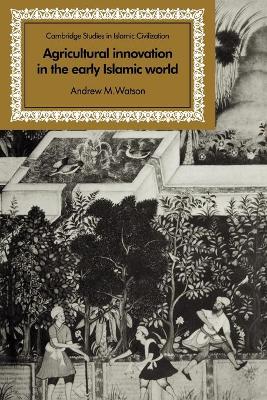Cambridge Studies in Islamic Civilization
1 total work
This study describes and explains the revolutionary changes which transformed the agricultural life of the Islamicized world in the four centuries following the early Arab conquests. Professor Watson discusses eighteen crops - from sorghum and rye to the watermelon - which spread through the Near East and North Africa during this period. Their origins, diffusion and uses are reviewed. The book investigates the mechanics of diffusion, the routes by which plants spread, and the processes by which they were acclimatized in their new environment. The social and economic history of agriculture in the medieval Islamic world is assessed in a review of wide importance. Professor Watson sets out to refute the view that the early Islamic period was one of agricultural decline in the Near East. He shows that, in contrast to the late Roman and Sasanian periods, it was a time of agricultural and demographic expansion. Agricultural innovation in the early Islamic world will be of interest to economic, social and agricultural historians and to those concerned with Islam and its effect on Africa and Asia.
